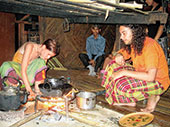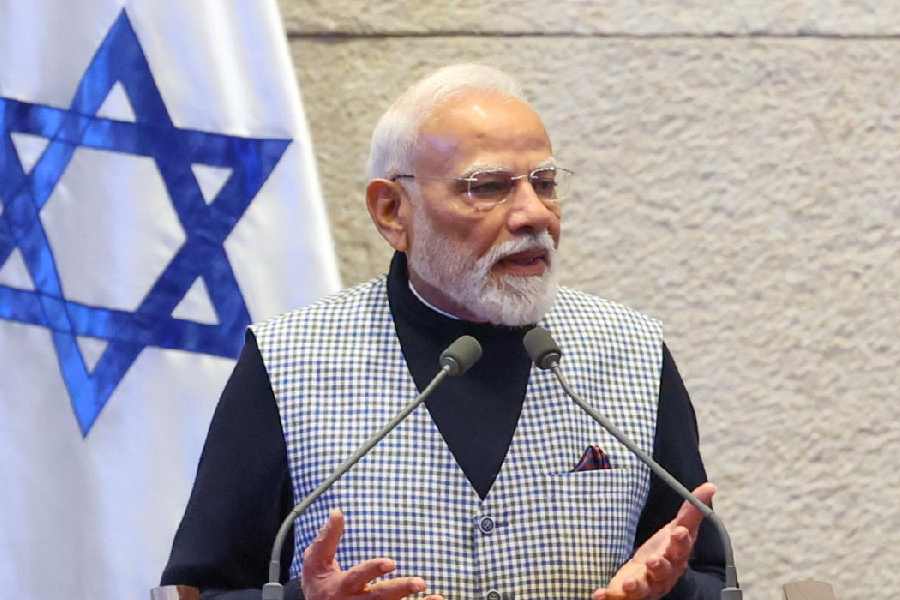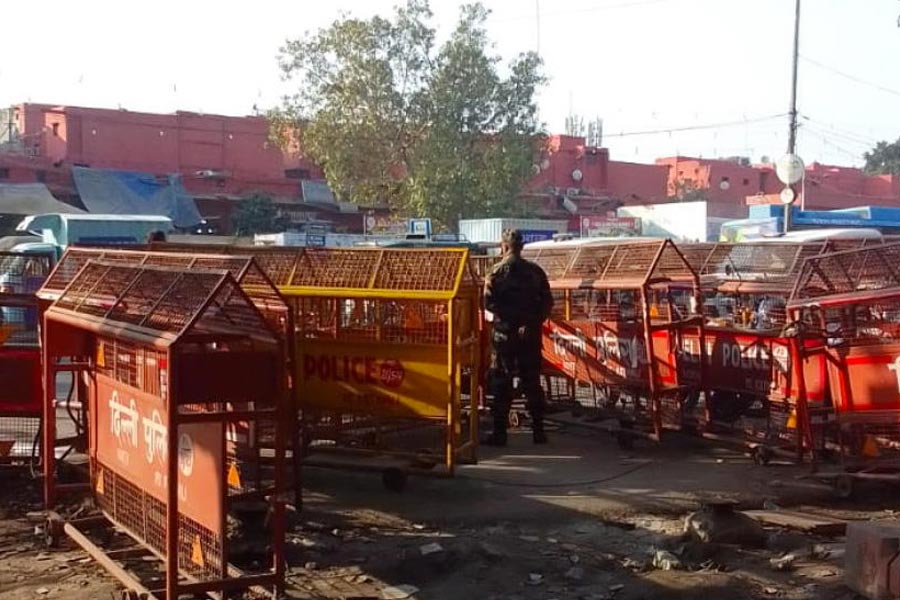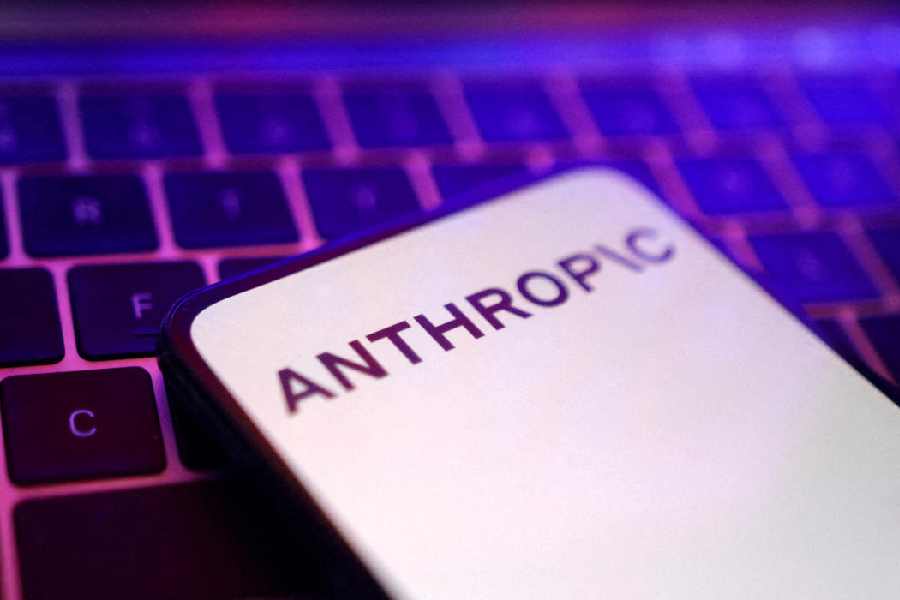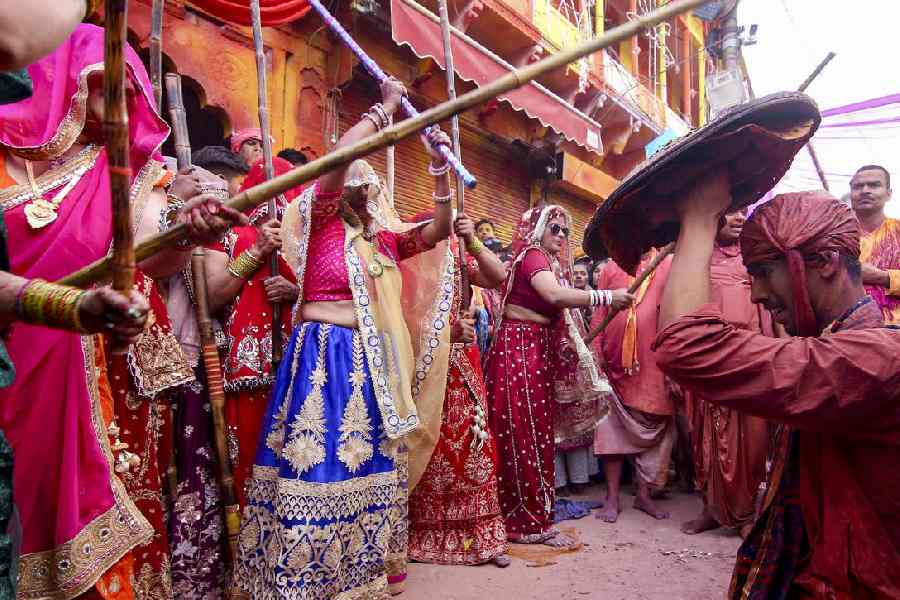 |
| Alba Mendoza and Leon Etchells in their hut in Sadiya, Tinsukia district. Telegraph picture |
Jorhat, May 29: The hands that hold the camera might be a little shaky and the screenplay not tight enough but these young moviemakers have created short films better than those by trained professionals.
Their work, which is there for all to watch and enjoy on the website voicesofindia.org, is the result of short workshops, involving young underprivileged children, conducted all over the country by two youths from London — Leon Etchells and Alba Mendoza.
These short films tell the tales of privation, exploitation or social inequalities, which prevail in their lives, though other subjects are also covered.
The duo were at Sadiya in Assam’s Tinsukia district recently, where they trained Mising children in the art of filmmaking — right from writing a story and a script to handling a movie camera and editing the footage.
“The main aim is to give them (the children) a voice of empowerment through digital innovative media, which is the most powerful medium of expression in today’s world. The movies they make about their circumstances will be uploaded on the website voicesofindia.org,” Leon said.
The two, having founded Voices of India, are working in collaboration with other NGOs and Ashoka fellows across the country.
Ashoka fellows are leading social entrepreneurs who have come up with innovative solutions to social problems and have the potential to change patterns across society. They work in over 60 countries around the globe in every area of human need.
I Card — an NGO founded by Ashoka fellow K.A. Thomas and working for uplift of the Mising community with focus on its school and college dropouts — invited Leon and Alba to Assam. The duo conducted the weeklong workshop at the organisation’s training centre in Sadiya by staying there for a week.
“Sadiya was an exhilarating experience, as we came across people who were not only warm and inviting but also evinced curiosity and a keen interest to learn the art (of filmmaking),” Leon said.
He said the first two of the seven days of the workshop were used to build a rapport with the participants, followed by an introduction to the beauty of filmmaking, discussions on social issues and things that affected them. They were then trained to handle a movie camera, told about different types of shots and related technicalities, various techniques of filmmaking and the various genres. On the third day, they were asked to choose a social issue to write a script, design costumes and decide on the setting for their shoot — to shoot in natural surroundings or take special permission to shoot in a police station or a hospital. They were given a camera and a free hand on the fourth day to shoot their movie and also act in it. In the evening of the same day, Leon said they started editing the footage to cut the movie down to 10 minutes.
On the last day, the films were screened, following which the young filmmakers were shown areas where they could improve and what more could be done to enhance the quality of the film, Leon added.
Some of the topics filmed by the Sadiya participants were organic farming, child abuse, malaria and true love versus money in marriage.
“Some of these films are better than those made by students who have studied filmmaking in the UK,” Leon said.
Alba, a Spaniard who has a degree in social education and community development, was working in London when she met and teamed up with Leon to work among disadvantaged people.
She said the Internet gave them access to a bigger audience and to stay connected whenever they needed help. “It is a powerful tool to showcase their problems. As the world can see these films, we can also hope for crowd funding to keep the project going,” she said.
The duo, who are working on a shoestring budget, have applied to the UN Habitat Fund for financial aid. At present, however, they are dependent on private funding and “their own pockets” to keep the project going.
Their work became easier after Video Volunteers, an organisation working in India, gave them five cameras and its head, Jessica Mayberry, put up a message on the Internet about the project, following which other NGOs and Ashoka fellows from across India began contacting them.
Their next stop is Odisha.

